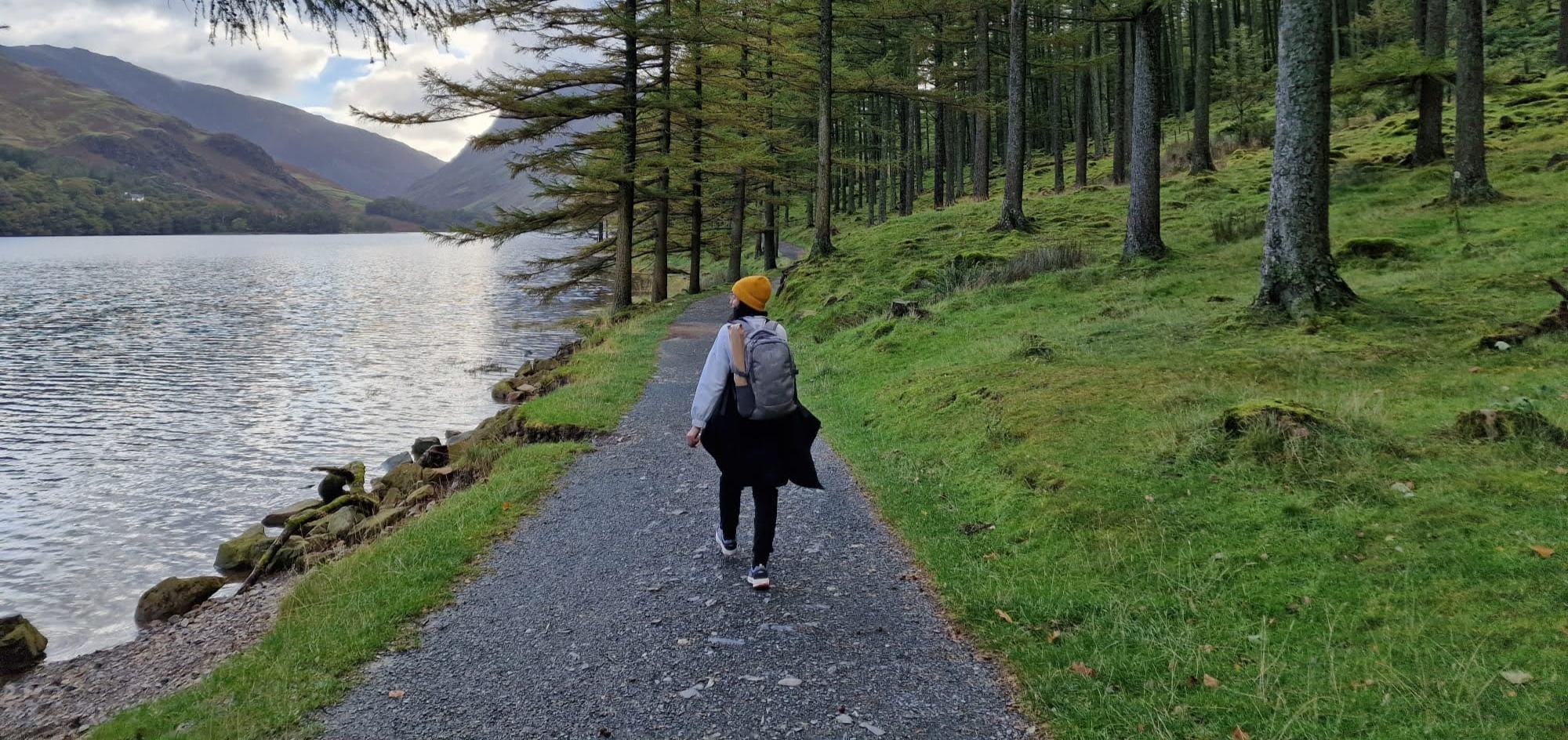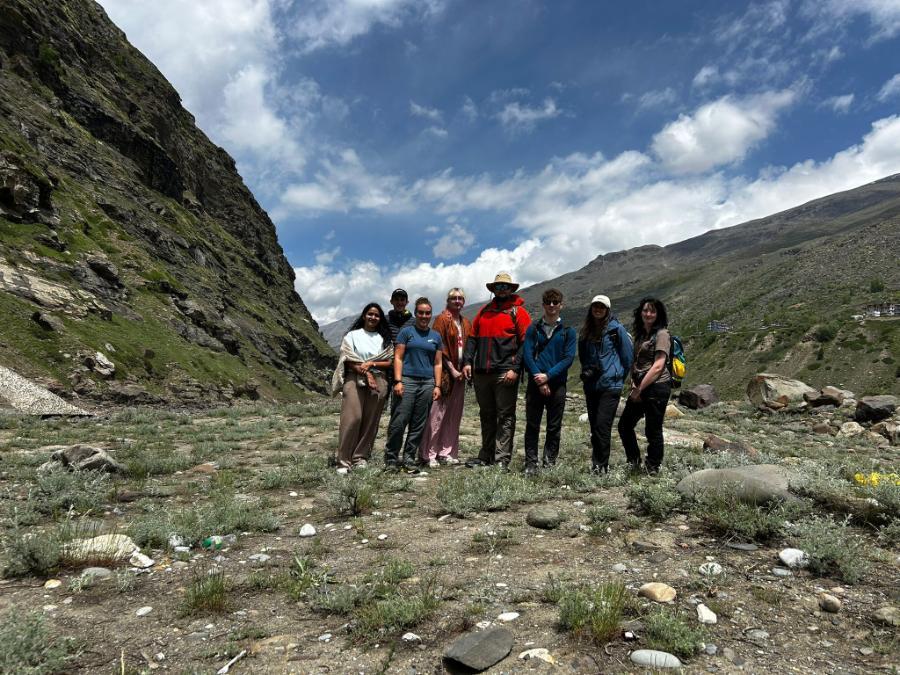
A PhD in Motion: Walking as a Method of Thinking, Feeling, and Researching
Nada Saadaoui, Doctoral Researcher in English Literature, Institute of Education, Arts and Society, University of Cumbria
Project Title: Female Mobility and the Transformative Power of Walking in Jane Austen’s Regency-Era English Landscapes
When people ask how I write my PhD, I often reply: I walk it first.
As a researcher exploring the role of walking in Jane Austen’s fiction, pedestrian movement is central not only to my subject matter, but to the way I think, feel, and create as a scholar. My project examines how walking in Austen’s novels becomes a site of emotional clarity, female autonomy, and reflection. But walking is not just something I write about; it is also how I write.
There is something transformative about the act of walking. It opens up mental space in a way that sitting still cannot. When I’m outside, especially in nature, ideas begin to form, questions arise more gently, and anxieties soften. Walking helps me rehearse arguments in my head, find clearer ways of expressing them, or simply step back from the pressure of productivity and reconnect with the deeper purpose of my research.
Living in Cumbria, where the landscape is steeped in literary history, walking feels like an extension of my academic practice. Dr Penny Bradshaw’s chapter, ‘Romantic Literary Geographies’ in The Routledge Handbook of Literary Geographies (2024), highlights the region’s literary significance, particularly in relation to how Romantic-era writers explored the interplay between geography and identity. As I walk through the fells, woods, or lakeside paths, I often carry Austen’s characters with me. Like Elizabeth Bennet, Anne Elliot, or Marianne Dashwood, I walk to recalibrate. Just as Austen’s heroines use walking to navigate difficult emotions or significant decisions, I too find clarity and emotional grounding through movement.
Yet walking is not always easy. Sometimes, it takes real persistence to step outside, especially during periods of stress, cold weather, or fatigue. It’s often easier to fall into the inertia of overworking indoors, staring at a blinking cursor, or scrolling endlessly under the illusion of rest. But it is precisely on those days that walking proves most valuable. It demands presence and reminds me that research isn’t only cerebral; it is embodied.
This connection between body and mind is what I find most powerful. When I walk, I’m not merely exercising; I’m engaging with my work in a deeper, more intuitive way. Walking helps me feel closer to Austen’s world, but it also connects me to my own. It becomes a way of navigating the emotional landscapes of doctoral research: the doubt, the excitement, the creative flow, and the frustration.
In Austen’s novels, walking is often where change begins. That’s true for me too. Whether I’m pacing the streets of London, walking along the coastal cliffs of Lyme Regis, or following a quiet woodland trail in Ambleside, each step becomes part of the research process. Two of my favourite local walks are the path to Jenkins Crag via Stockghyll Woods, which leads to a stunning viewpoint overlooking Lake Windermere and the surrounding fells, and the peaceful stretch along Jenkins Field by the lake shore, where a quiet bench offers a perfect spot for reading and reflection. For anyone undertaking long-form academic work, I encourage you to treat walking not as a break from your research but as an essential part of it.
Email: nada.saadaoui@uni.cumbria.ac.uk
LinkedIn: linkedin.com/in/nada-saadaoui-a5a67b267
X (Twitter): x.com/NadaSaadaoui
Want to find out more about our Postgraduate Community?
A postgraduate research degree at the University of Cumbria offers the perfect opportunity to follow your passion, enhance your skills and influence the world around you. As the blogs here show, we are home to a rich community of people from all kinds of backgrounds and career points.
Rated as the best University in the UK for overall PhD experience in 2025, Cumbria offers a welcoming, supportive and challenging environment to utilise your enthusiasm and knowledge and turn it into insightful and impactful work. If you are interested in undertaking a research degree with us, then please contact Professor Tom Grimwood via Tom.Grimwood@cumbria.ac.uk for a conversation.

.jpg)


.jpg)